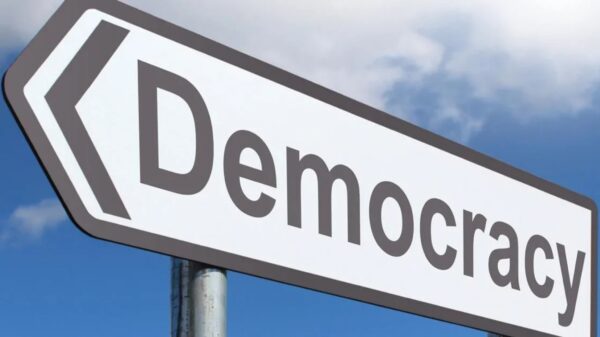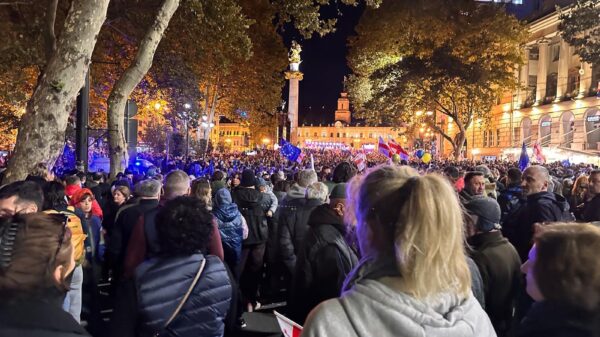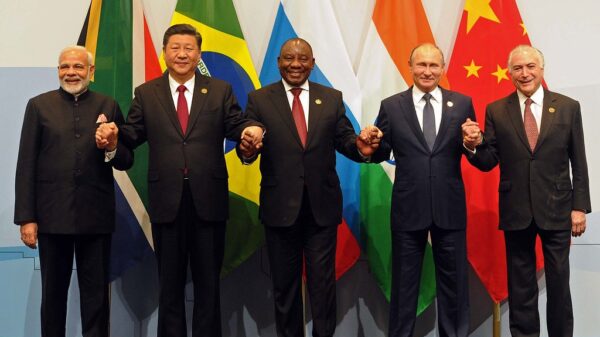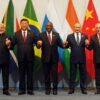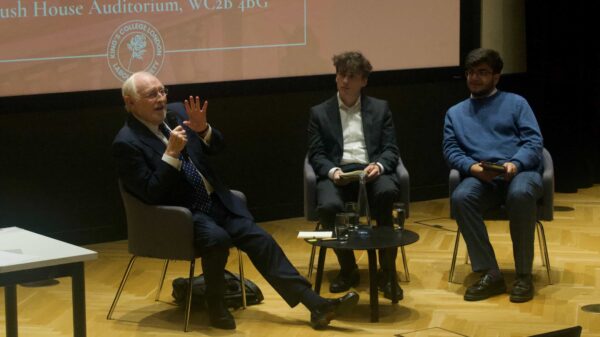Staff writer Aneela Aslam examines the democratic fragility of Brazil.
New Year’s Day 2023 marked the inauguration of President Lula of Brazil, the first elected Brazilian president to serve a non-consecutive third term. The absence of former president Bolsonaro at the ceremony foreshadowed public unrest and symbolised Brazil’s slide into polarisation. On January 8 Bolsonaro supporters rioted in the nation’s capital, Brasilia.
The riots followed months of pro-Bolsonaro activists protesting Lula’s narrow victory in the October 2022 presidential election. In what has been deemed a planned attack according to Brazillian telegram conversations, right-wing Bolsonaro supporters stormed the Brazilian Supreme Court, National Congress and Presidential palace in an attempt to overthrow Lula’s presidency over claims of election fraud. Many of the rioters sought to enable a military coup to disrupt the democratic transition of power to Lula. The attack lasted for over five hours as rioters were cleared from the government buildings. Neither Lula nor Bolsonaro were in the capital at the time.
The unrest led to Lula declaring a federal state of emergency in the district of Brisilla. It took riot police using tear gas and water cannons to regain control over the government buildings. Lula has since dubbed the participants “vandals, neo-fascists and fanatics” and promised to deliver legal justice. Additionally, the Brazilian president blamed the riots on the failure of military leaders and his predecessor Bolsonaro.
Bolsonaro later condemned the actions of the protesters on Twitter, proclaiming innocence whilst maintaining that he only believes in democratic protests. However, Bolsonaro’s absence from Lula’s inauguration ceremony was seen by his supporters as him not accepting the election results, inciting his supporters to riot. Bolsonaro left Brazil for the US days before the inauguration and has applied for a six-month visa, but he has since declared his intention to return to Brazil and reassume his political position as leader of the anti-Lula faction. The storming of the National Congress in Brasilia has been likened to the January 6 storming of the Capitol by supporters of former US President, Donald Trump. The parallels between Bolsonaro and Trump are well-versed.
The discontentment, violence and polarisation of politics has prompted the question of if Brazilian democracy is in crisis.
The Brazilian political landscape is marked by the scars of its past. After decades of military dictatorship, Brazil became a democracy in 1985, yet corruption has remained endemic. Lula’s past presidential terms were plagued with allegations of corruption and he was implicated in Operation Car Wash (a momentous corruption scandal in Brazil). This level of corruption amongst those elected to the highest offices, judges and prosecutors exemplifies how the corruption within Brazil has seeped into every aspect of democracy. This has fuelled the polarisation of debate.
The structure of Brazil’s political system is essential to understanding the stability (or lack of stability) within Brazil’s democratic makeup. Essentially Brazil is a federal government made up of states, like the United States. However, the Brazilian central government’s weakness due to scandals and mistrust has further eroded democracy across the nation. The central government has “struggled to maintain law and order in all Brazil’s vast territories” from the Amazon to the favelas. This lack of a successful central government and resultant polarisation contributed to the successive rise of Jair Bolsonaro, the previous Brazilian president.
Bolsonaro gained traction following the Brazilian economic crisis, which characterised the political landscape in the country during 2014-2018. The rising trend of populism within the nation has been largely attributed to the economic decline and successive recessions, which enabled Bolsonaro to gain popularity among a discontent public. Alongside a weakened central government rife with corruption, populism was bound to be on the rise within Brazil.
The rising trend of populism pits ‘the people’ against the elite ‘ruling class’ and has become prominent within global politics – Orbán, Marcos and Le Pen are just a few of the prominent practitioners. Similarly, Bolsonaro has been dubbed ‘the Trump of the Tropics’. Both Bolsonaro and Trump emphasise political caricatures which focus on nationalism, increasing employment and polarisation. Simply put, their politics comprise of an ‘us and them’ strategy. Both presidents symbolise how populism contributes to the ‘celebrification’ of the politician. Efforts focus on controversial campaigns and empty speeches full of impossible promises rather than effective governance and leadership. Additionally, both figures play on the divide between the electorate and the ‘ruling class’ through an anti-globalist nationalism. Controversial enough to be elected once, but too ineffective to win a second term?
However, Bolsonaro’s inability to be re-elected doesn’t decrease his impact on Brazilian democracy. ‘Bolsonarism’ led to increasing distrust in the central government institutions which fuelled the riots in Brasilia. Throughout his presidency the ex-military captain promoted distrust in the traditional political regime and filled his cabinet with military officers. Bolsonaro’s masculinised conservative values and authoritarian leadership (essentially his entire political agenda) heavily contributed to an increase of polarisation in Brazil and the rising appetite among supporters for a return to the dictatorship of the 1970s. This in turn has led to dissatisfaction of his supporters in Lula’s democratic election, which they have dubbed electoral fraud. This is another trend reflecting increasing populism, as the US Capitol riots following Trumps unsuccessful re-election campaign similarly sought to disrupt the confirmation by Congress of Biden’s election.
After months of claiming an unfair electorate process exists within Brazil, Bolsonaro ironically claimed that he was not an opponent of democracy. Yet his failure to be present at his successor’s inauguration and consistent anti-democratic rhetoric is what incited the rioters, as they sought authoritarian interference from the army. Bolsonaro’s lack of support for democracy has encouraged the rioters’ dwindling faith in the Brazilian system.
The fate of Brazilian democracy rests with Lula and if his response can strengthen faith in the democratic system. His presidential term might polarise Brazilian politics even more if he does not appropriately handle his opponents. Lula’s response to the January 8 rioters might be potentially disastrous as he repeatedly blamed Bolsonaro for inciting the rioters, the failure of military elites to prevent the rioters and vowed to punish “anyone involved”. Consequently, Lula dismissed an army chief following the riots, implying severe distrust in the military.
His predecessor Bolsonaro militarised the administration so heavily that over 6ooo military officers were appointed to administrative positions in the government, even more than during the military dictatorship. Lula thus deems a crackdown on the police and military officers essential for the safety of his administration. He fired almost all the state chiefs of the federal highway police and sacked over 18 superintendents, whose powers had risen greatly under Bolsonaro’s leadership. Lula’s distrust of the police and military further symbolises the rising polarisation in Brazil – even key institutions of the nation do not have faith in each other to uphold the democratic constitution.
Moreover, the distrust that plagues Lula stems from economic dissatisfaction within Brazil, as the unemployment rate in Brazil has doubled since 2014 to over 14%. Bolsonaro is not the principal threat to democracy or Lula if people are instead dissatisfied and incensed by poverty, starvation and the political class’ failure to help. Lula’s attempts at economic reform will be vital to restore faith in government among ordinary Brazilians.
One significant development is the announcement in January that Brazil and Argentina are looking to develop a shared common currency to increase bilateral trade and decrease reliance on the United States. The idea of a new currency would in-part be to decrease inflation. Butt tying Brazil to Argentina’s unstable economic situation may prove dangerous, especially as Latin America’s largest economy. Alternatively, Lula’s trip to Washington may be increasingly important to overcoming democratic instability as he attempts to improve US-Brazilian relations. Lula has been successful in obtaining financial support for the protection of the Amazon rainforest. Both stand united as ‘the largest democracies in the Western Hemisphere’.
Despite this early policy success for Lula, Brazilian democracy is truly in crisis. Increasing polarisation within Brazil, economic decline and a weak central government all threaten the political makeup of the country. Economic reform, accountability for political elites, and a kinder, more tolerant politics are all required to reinforce Brazilian democracy. Leaving this situation unaltered could otherwise prove fatal.









